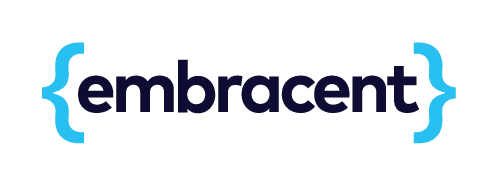In the latest in our new ERA (Efficiency, Resilience and Agility) series, Chris Beeley, embracent’s Finance Practice Lead, sets out some thoughts for CFOs and Finance Leaders.
“It is not the strongest of the species that survive, nor the most intelligent, but the one most responsive to change.” – Charles Darwin
We are all reeling from the devastation and unprecedented challenge that COVID-19 has brought to our health, our well-being, our family and friends and to businesses and the economy. Now that business leaders have responded to the initial priorities of protecting their staff, customers and other stakeholders, attention is turning to the medium-term prospects and the financial sustainability of the business. But the world of work is a very different place to before:
- The financial rule-book has been re-written by the UK Government
- Supply chains have been disrupted and are being re-wired globally alongside new trade deals
- Organisational business models are having to adapt to changes in routes to market and consumer buying preferences
- Remote working is becoming not just accepted, but the new normal
- Whole industry sectors are facing a seismic shift as customer demand has disappeared overnight
When COVID-19 hit us, we produced a simple checklist for CFOs and Finance Leaders. As we prepare to emerge from “the Great Pause” (source: Jeremy Snape, ex England cricketer and founder of Sporting Edge), it is critical to re-set the vision for Finance and embrace these new times. What should, therefore, be considered?
Efficiency
For many years, organisations have been striving to deliver greater efficiency across Finance and the broader back-office. Often, this has been driven by a need to deliver their share of an organisational strive for cost savings. Efficiency means so more than just saving money…it’s about productivity, standardisation and empowering talent to add more value to the organisation.
Where should CFOs focus?

Focusing Productivity
Drive productivity (i.e. cost) by focusing the business on its most profitable products, services and channels.

Automating
Channel the digitisation of back-office processes to improve quality, control, productivity and empower your finance talent. Click to watch an example of automating the production, collation and dissemination of 2,000 reports across a month end.

De-cluttering
Eliminate the complexity associated with organisational structures (legal entities, cost allocations, cost centres) and unnecessary configurations of technology. Adopt standard out of the box processes, rather than adapting them to fit every eventuality.

Digitising paper
It’s more immediate, more efficient, it’s safer and easier to find and retrieve whether in the office or working remotely. Great examples already exist in invoicing and receipting processes, as well as automating approvals through workflow technologies – digitising enables both efficiency and virtual working
In our view, the future finance organisation will spend no more than 15% of its time and resources/cost on end to end transaction processing, whilst also providing a single version of the truth of data for end users to access.
Resilience
With the rapid de-camping of Finance staff from the office to a home-working environment, the resilience of Finance will have already been tested. This will have been especially true at the end of March which for many was a month end, a quarter end, and a financial year end.
Our discussions with some of the leading cloud enabled ERP applications indicates a stark reality that the March month end was severely impacted for organisations with legacy on-premise technology and the need to access physical documents.
What is for certain, is that COVID-19 will accelerate the move to cloud for those who have yet to make the move.
Where should CFOs focus?

Process Resilience
Ensure that routine and critical business processes can operate in a virtual world, reducing the exposure to external shocks and avoiding single points of failure.

Driving a “cloud first” strategy
But importantly ensure that the focus is on an intelligent and measured investment in technology. Short term tactical improvements to optimise the current systems and data architecture are beneficial when investment money is limited.

Sustaining and protecting the business
The rapid focus on short-term cashflow brought on by COVID-19 has tested most CFOs and their teams. “Cash is king” is nothing new to any of us, but technology exists to establish a robust cashflow capability using validated data, with scenario and auditable capabilities built in. This has to become a critical finance capability.
The pandemic has been a real wake up call for many in Finance. Finance has always prioritised the protection and creation of value to its shareholders and stakeholders. Now is the time for Finance to protect how it delivers that service.
Agility
Traditional ways of working across Finance and with internal customers, where walking to someone’s desk to resolve a query, have been disrupted. For many, the move to technology enabled collaboration platforms such as Zoom or Teams, was easy. CFOs and Finance leaders tell us that daily/frequent team check-ins using such technology have been really beneficial to maintain communications, engender a sense of community and prioritise tasks. This new agile way of working is here to stay.
Where should CFOs focus?

Collaborating
Embedding employee engagement tools into business as usual, with the aim of saving time and countless email exchanges to resolve issues.

Enabling a remote and mobile frontline workforce
By delivering dynamic insights, process workflows and corporate information to executives, employees and customers who have access via their mobile devices.
Flexible resourcing
Ensuring that specific capabilities can be accessed as and when needed from external sources, through flexible resourcing models that can be managed as priorities demand.
Our finance training and professional qualifications have given us a foundation for following accounting principles, ensuring absolute consistency in the numbers we report. The term “we have always done it this way” resonates. However, now more than ever, is the time for Finance Leaders to embrace new thinking given the times ahead of us.
“Always think outside the box and embrace opportunities that appear, wherever they might be.”
— Lakshmi Mittal, Chairman & CEO of ArcelorMittal

Chris Beeley
Practice Lead - Finance Transformation
Other Interesting Reads
AI for Onboarding: A glimpse at the not-so-distant future for HR Directors
Artificial Intelligence (AI) has experienced a breakthrough year in 2023. But how we embrace AI and Machine Learning (ML) without losing sight of the bigger picture – and how we can be “better together” – is a conversation that we should all be having.
With that in mind, we invite you to see how AI has impacted Santa Clause this year in our short Christmas video.
embracent Christmas Video 2023
Artificial Intelligence (AI) has experienced a breakthrough year in 2023. But how we embrace AI and Machine Learning (ML) without losing sight of the bigger picture – and how we can be “better together” – is a conversation that we should all be having.
With that in mind, we invite you to see how AI has impacted Santa Clause this year in our short Christmas video.
Mastering Membership Data: The Five Pillars for Organisational Success
Explore how understanding members, aligning services, monitoring member activity, optimising internal operations, and tapping into external insights can revolutionise your organisation’s performance.



